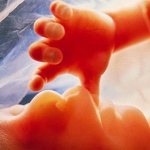This article first appeared in the online version of the Catholic Weekly in the 19th April edition.
A couple of weeks ago, my friend and colleague Peter Holmes published an article ‘Missing Mass? Don’t complain…’ Its focus is not so much on those who complain about missing Mass, but on those who – like myself – may actively seek to attend one. I respectfully disagree with Peter, not so much with any one particular point, but with the overall implication.
Holmes acknowledges that he misses attending Mass and outlines the many benefits that flow from it. He then develops his reflection, recalling the suspension of temple worship in the day of the prophet Amos (C8th BC). In that episode, the ritual sacrifices of ancient Israel were considered worthless by God, because the people neglected mercy and temporal justice. Holmes seems to imply that going to Mass in the time of coronavirus – whether it be clandestinely, or by pushing the boundaries of the law (temporal or ecclesial) – is similarly displeasing to God. That in some way, the love of the Mass makes a person like one of the hypocrites, who worshipped at the expense of the orphan and widow.
I understand Holmes’ concern. The church should never be a source of sickness, infection, and death. The best medical evidence tells us that gathering for public worship could contribute to the spread of coronavirus. Yet, the best medical evidence surely says the same thing about supermarkets and hairdressers. Experts in other fields might also tell us that isolation is unhealthy for hearts, minds, and souls.
What is my problem? It’s about putting first things first. Despite the risk, supermarkets, hardware stores, takeaway cafes, and hairdressers all remain open. In view of this, one wonders if enough voices had cried out against the closure of the churches, would the government agree that religious worship was an essential service too?
There are many Catholics disheartened by what seems to be the bishops too easily rolling over. Several dioceses ceased public Masses before the government even ask them to do so. It seemed that the Church hierarchy didn’t value its own worship. For decades, clergy have told their faithful that the Mass’s greatest value is the gathering of the people. How patronising now to hear them say; “don’t worry we will still be saying Mass for you”. “Well I should hope so”, is the response of every Catholic.
But is it an ‘essential’ service? We can ask that question of supermarkets, childminding services (schools), and – God forbid – hairdressers, but we cannot measure the Mass in human terms. It is not just a tool for forgiveness, or communion, but it is the right worship of God. If the sacred rites are just a ‘service’, then a podcast, prerecording, or video will do. Even better, if you have live-streaming you can be ‘in community’ with the likes, love-hearts, and number of views popping up at the bottom of the screen. But that is not how we understand the Mass. That is not the tradition of the martyrs.
Holmes argues against those who think they have a ‘right’ to Mass. I don’t know anyone who thinks that. Mass is more of a duty than a right. In the past, real-life dangers created opportunities for creative and heroic disobedience to the corrupt institutions of man. While this Catholic memory lives on, it is a complete misunderstanding to characterise one’s zeal for the liturgy as an uncharitable desire for a selfish good.
Can a Catholic be wrong for thinking some things are worth the risk? Medical practitioners put themselves at risk, law-enforcement officers put themselves at risk. Even checkout assistants and hairdressers are putting themselves and, by extension their families, at risk.
Returning to the example of the prophet Amos, perhaps there is a different conclusion. In his day, the sacrifices were taken away from a faithless people. Their injustices include deceitful business practices, sexual immorality, and the neglect of the disadvantaged (cf. 2:6-8; 5:11). Reflecting on our unworthiness, we should question whether there is some divine judgement in the present situation. That our bishops, priests, and faithful should so easily give up the Sacraments might lead us to question if we are rightly disposed to such an awesome gift. Maybe on the eve of the Coronavirus pandemic we were much like the congregation of Israel in Amos’ day?
Having the Mass taken away provides an opportunity to see what we truly value. Do we value our own respectability, social conformity, and life more than the worship of the God? Such disorder can only lead to a world where people die alone, as pharisees cross the other side of the road, keeping quarantine. Going to Mass for the purpose of showing honour first to God cannot be contrary to charity. No, from that source rolls down charity in a flowing stream and quietly but awesomely we are inspired to be charitable to one another. Putting first things first is what is most needed, especially at this particularly difficult time.









